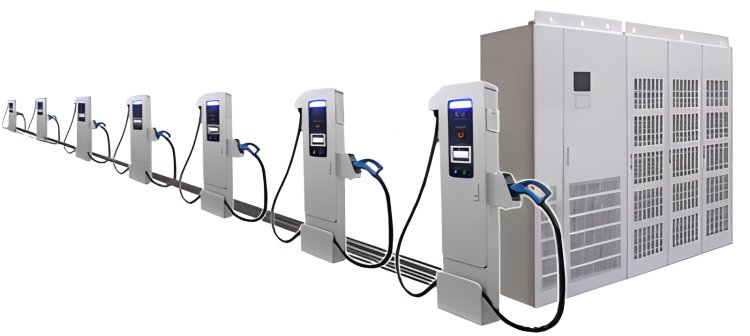Hitachi Industrial Products to launch high-capacity Multi-port EV Charger
With the use of bidirectional charge/discharge management technology, grid congestion can be removed without the need for grid reinforcement, and voltage control that is necessary owing to the widespread deployment of renewable energy may be stabilised.

Tokyo, Japan- Hitachi Industrial Products, Ltd., announced that Hitachi Industrial Products will launch a large-capacity multi-port EV charger that enables fast charging of electric vehicles (EV) from October 2023.
By allowing more vehicles to be charged concurrently, the large capacity multi-port EV charger created by Hitachi Industrial Products helps to reduce charging times and congestion. With the use of bidirectional charge/discharge management technology, grid congestion can be removed without the need for grid reinforcement, and voltage control that is necessary owing to the widespread deployment of renewable energy may be stabilised. In addition, the value of EVs' potential as distributed energy resources is maximised by high-efficiency power conversion technologies. To achieve a decarbonized society with this technology, Hitachi Industrial Products will support the growth of the EV market and the extension of the charging infrastructure.
In order to test the Japan-China next generation charging standard CHAdeMO 3.0 (ChaoJi2) and to promote the standard globally, Hitachi Industrial Products is taking part in the demonstration project started by the CHAdeMO Association. Omika Works (5-2-1, Omika-cho, Hitachi city, Ibaraki Prefecture) has been constructed as the first demonstration site in Japan for the verification of the next-generation EV charging standard, and it will be accessible to local and foreign EV OEM starting in October 2023 for a period of two years.
It is planned to install a large-capacity multi-port EV charger in the parking area at Tsuchiura Works (603 Kandatsu-machi, Tsuchiura-city, Ibaraki Prefecture) to encourage employees to use EVs for their commuting by allowing them to charge EVs while working (from April 2024). This will help reduce CO2 emissions from commuting vehicles.


